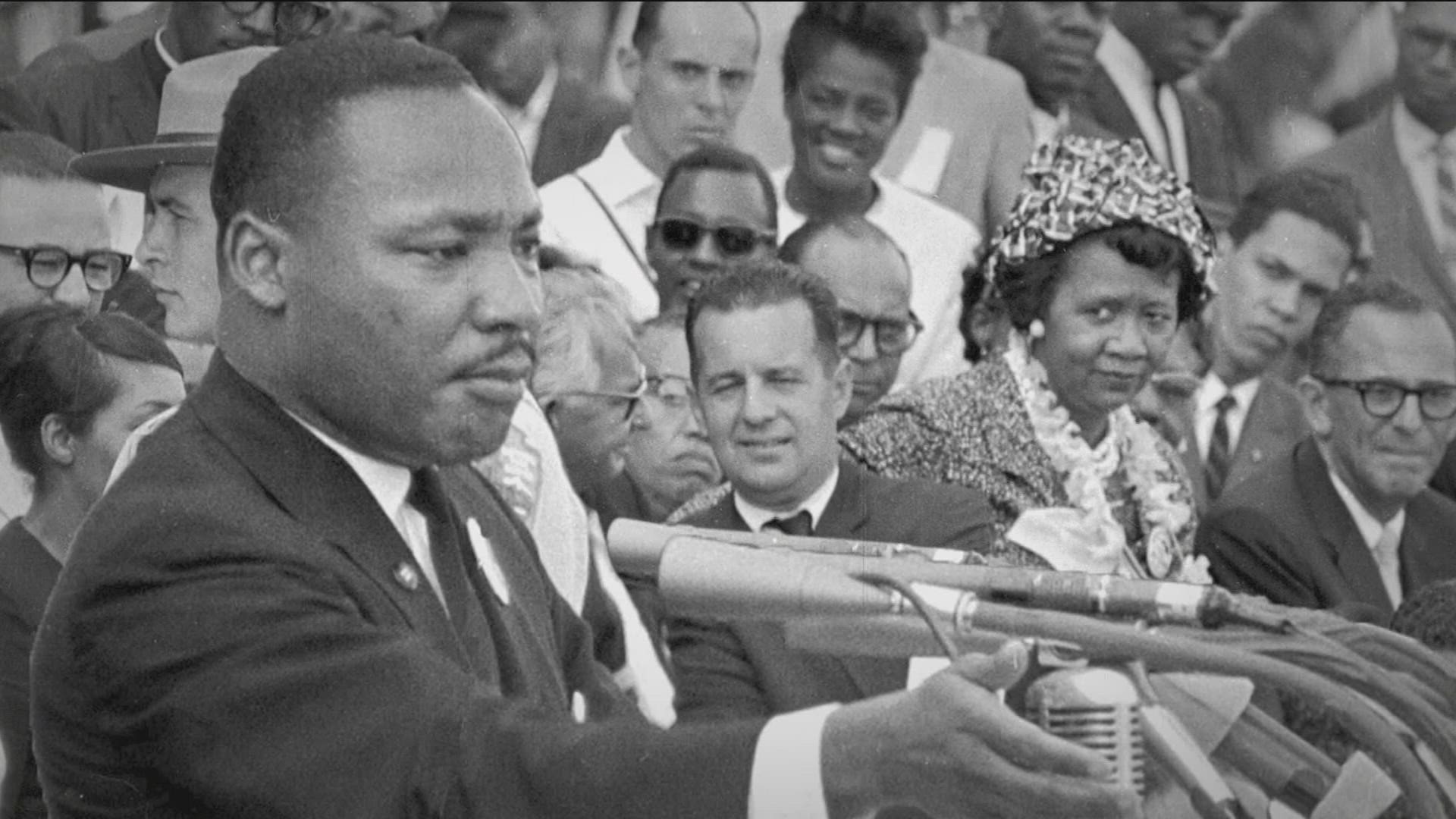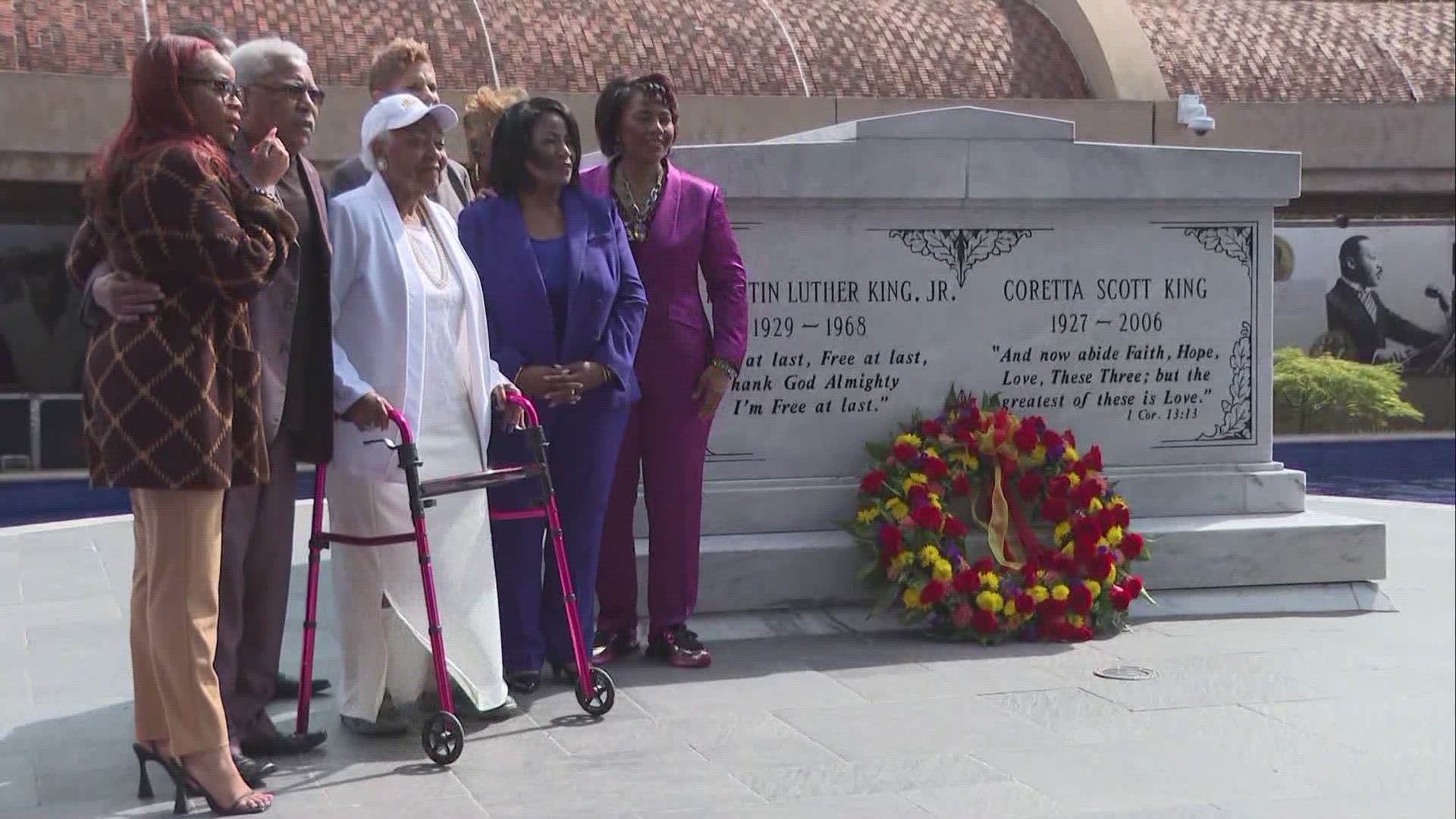ATLANTA — Atlanta organizations are commemorating Dr. Martin Luther King Jr.'s legacy with a wreath laying ceremony Tuesday. It's been 55 years since the late civil rights leader was assassinated.
The King Center, the official memorial of King's and his wife's legacy, began the wreath-laying ceremony at 2:45 p.m. at his burial site.
Rev. Dr. Bernice King, the daughter of the late pre-eminent leader and his wife Coretta Scott King, spoke about her father's legacy.
"His life was cut short by an assassin's bullet that caused a cessation of his breath on this earth. But he didn't die. He transitioned to a higher role. And the reason I think this world has not come apart is because the spirit of Dr. King has been dispersed and dispensed throughout this universe," said his daughter.
She added that her father now lives through the family and how his idea of peace continues throughout the world.
"The nonviolence that Dr. King embodied and taught, because he taught it not just as a tactic to be used in a social justice movement. He taught it as a way of life," said Dr. Bernice King.
U.S. Congresswomen Nikema Williams also attended the event.
Latrice Pace, Ricky Dillard & New G and Morton Perry are listed as musical guests for Tuesday's wreath-laying ceremony, a press release stated.
The ceremony will first began with a powerful conversation about transforming unjust systemic systems. The conversation will explore the deeper meaning of economic inequalities and more.
Click below to re-watch the ceremony.
King was born on Auburn Avenue where he grew to steer a movement that would guide the Black community to racial equality.
He would then become the pastor of Ebenezer Baptist Church in the southeast Atlanta community.
According to the King Center, King won a Nobel Peace Prize and guided many marches followed by speeches where he fought against racial inequalities in the nation's most historical events.
On April 4, 1968, the 39-year-old civil rights leader was shot and killed while standing on a balcony of the Lorraine Motel in Memphis, Tenn. His murder was followed by a wave of rioting.
James Earl Ray later pleaded guilty to assassinating King, then spent the rest of his life claiming he’d been the victim of a setup.
King’s body was then returned to his hometown in the metro, the King Center stated. High-level leaders, including civil rights pioneers, attended his funeral.
Before King's brutal death, he was working on a way to lead the country in a nonviolent way to freedom and equality.
Tuesday's ceremony will conclude with a second wreath laying at the historic church King preached at, the website said.
The Associated Press has contributed to this article.


